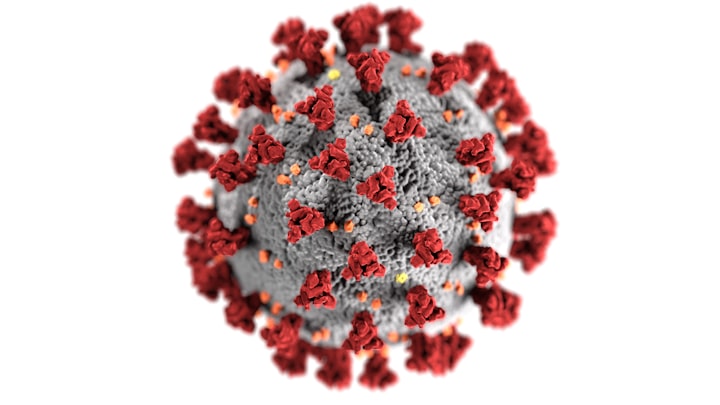The US Centers for Disease Control and Prevention (CDC) The ACIP Advisory Committee commended Johnson & Johnson's COVID-19 policy as an encouragement to all eligible individuals who have received the licensed COVID-19 vaccine. In collaboration with education groups in South Africa and around the world, the company has tested the effectiveness of its COVID-19 policy across all forms, including the new variant now, Omicron's rapid distribution. Significant results will emerge from a study that plans to test the immune system of people who have been vaccinated or treated with Covid-19 against Omicron. The antibody effects will be found in previous Covid-19 infections, in various vaccines, and possibly in people who also get vaccinated.
If many successful infections lead to hospitalization or death, researchers will monitor which vaccines these people receive and when they will see if Omicron is taking one injection than others, or if there is a shocking decline. Ongoing or ongoing research includes infection testing, infection risk (including symptoms), the success of vaccine testing, and treatment success. As Omicron has been identified as a concern, WHO recommends that countries take several steps, including improving testing and prosecution; genomic sequencing sharing in community archives such as GISAID; reporting basic or integrated cases to the WHO; conducting field studies and laboratory tests to better understand whether Omicron has other transmission or disease characteristics, or whether it affects the effectiveness of vaccines, treatment, diagnosis, or community and community health interventions.
Covid-19 vaccine and booster vaccine six months later are still the most effective means of protection against omicron. Many experts believe that our current vaccination rate should protect people who have been vaccinated against serious illness or death even when exposed to Omicron, even though they may be at risk of developing minor illnesses and diseases. Scientists do not know that omicron causes serious illness, but they do know that vaccinations should provide reliable protection against serious illness and death. Previous research suggests that vaccinated people will need a booster dose to have a better chance of preventing the omicron infection, but even without an extra dose, vaccination should significantly protect people from serious illness or death.
Even if the goal is against Omicron, new versions will be needed some time and soon. If this is true and booster doses allow people to withstand varied variations like Omicron, it may indicate that the parameters should not be changed. If an option affects the effectiveness of the vaccine, four or more vaccines may be needed to further protect against the virus, perhaps by using new vaccines, which raises the question of whether they should be permanently vaccinated. Vaccine manufacturers are already focusing on their various efforts, testing the bulk booster, developing a new booster awaiting genetic modification, and developing omicron-specific boosters.
Drs. Stephen Hoge, President of Moderna, said the current policy is very likely and will not be in line with Omicron's choice. These results raise concerns that the COVID-19 vaccine licensed in many countries may not work against the Omicron brand. These results raise concerns that the COVID-19 vaccine licensed in many countries may not work against the Omicron brand.
Changes in spike protein The main focus is that the Omicron variety has more than 50 mutations, 30 of which are found in spike proteins, which are targeted. Experts are concerned that the antibodies obtained during vaccination do not match the Omicron protein spike protein, which will reduce the rate of infection. However, high levels of antibodies produced after three doses of the vaccine appear to prevent severe symptoms after a different Omicron infection. Immunosuppression against small cellular diseases does not work as well as previous vaccines, which can lead to a high rate of successful infection.
Omicron has also shown that it can cause infections in vaccinated people and can infect people with the virus. Scientists say that the omicron spreads more easily than other species of coronavirus, including delta. A recent study published in South Africa that has not been peer-reviewed suggests that Omicron may suppress the immune system, causing re-infection in people who have recovered from COVID-19.
Preliminary evidence suggests that the risk of re-infection with Omicron may increase compared to other worrying options (i.e., people who have been exposed to COVID-19 may be more likely to experience Omicron), but the information is limited. In the next few weeks, scientists will begin publishing laboratory data that could help identify the threat posed by Omicron strains to existing Covid-19 vaccines and our vaccines. Based on our long-term collaboration with South African scientists and the ongoing international research on Johnson & Johnson's COVID-19 policy, we will work together to generate new data about Omicron.
After more than a year of recruiting public health professionals, the US government will send free COVID-19 tests directly to Americans for the first time. Washington (NewsNation Now) - With the expansion of the omicron variety, President Joe Biden announced free 500 million free trials for the American people, increased hospital support under pressure to vote, and emphasized vaccination and improved efforts. In a speech scheduled for Tuesday afternoon, Biden highlighted major changes to his winter COVID-19 system, caused by the emergence of fast-moving species that have not yet been fully released.






Comments
There are no comments for this story
Be the first to respond and start the conversation.